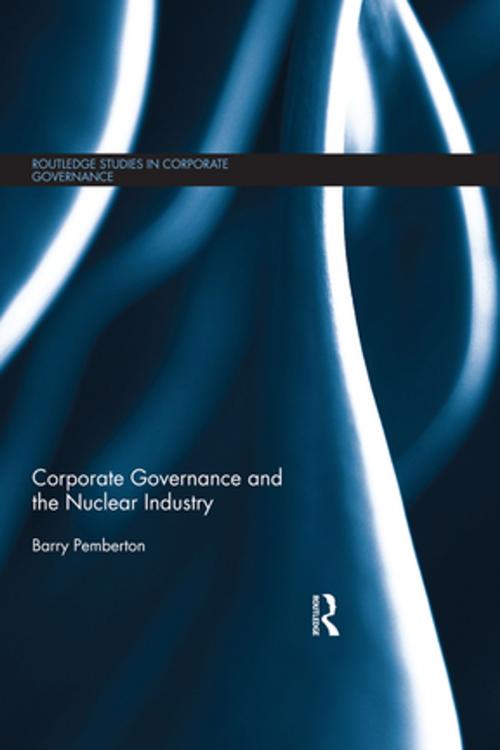Corporate Governance and the Nuclear Industry
Business & Finance, Business Reference, Business Ethics, Industries & Professions, Industries, Management & Leadership, Management| Author: | Barry Pemberton | ISBN: | 9781317398073 |
| Publisher: | Taylor and Francis | Publication: | September 16, 2015 |
| Imprint: | Routledge | Language: | English |
| Author: | Barry Pemberton |
| ISBN: | 9781317398073 |
| Publisher: | Taylor and Francis |
| Publication: | September 16, 2015 |
| Imprint: | Routledge |
| Language: | English |
Corporate Governance and the Nuclear Industry explores the UK nuclear Legacy - governance issues associated with the decommissioning of a range of early-generation civil nuclear facilities. This book traces how we got here and the risks that have been taken, whilst presenting new research and thinking that is required to manage our nuclear Legacy.
The book addresses a new analytical approach using notions of governance to review key historic events. This approach analyses these events using concepts of stakeholder control, accountability and regulation. Using these concepts and undertaking a more detailed analysis of the Legacy’s current governance arrangements; the conventional public sector-based solutions that attempt to harness private sector expertise, this book will contrast these with government responses to determine the degree of control over the Legacy and any possible control issues.
Corporate Governance and the Nuclear Industry concludes that we need to recognise the legacy’s problems as exceptional rather than prosaic, and suggests that this requires exceptional governance solutions rather than the current form that is clearly failing.
Corporate Governance and the Nuclear Industry explores the UK nuclear Legacy - governance issues associated with the decommissioning of a range of early-generation civil nuclear facilities. This book traces how we got here and the risks that have been taken, whilst presenting new research and thinking that is required to manage our nuclear Legacy.
The book addresses a new analytical approach using notions of governance to review key historic events. This approach analyses these events using concepts of stakeholder control, accountability and regulation. Using these concepts and undertaking a more detailed analysis of the Legacy’s current governance arrangements; the conventional public sector-based solutions that attempt to harness private sector expertise, this book will contrast these with government responses to determine the degree of control over the Legacy and any possible control issues.
Corporate Governance and the Nuclear Industry concludes that we need to recognise the legacy’s problems as exceptional rather than prosaic, and suggests that this requires exceptional governance solutions rather than the current form that is clearly failing.















